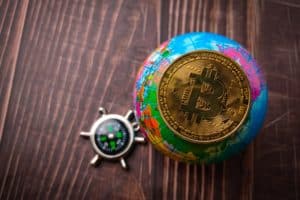
El Salvador’s President Nayib Bukele said that starting today, he will return to investing in Bitcoin, buying one per day.
After 3 months, El Salvador returns to investing in Bitcoin.
The bearish market condition led El Salvador to stop investing in Bitcoin for a few months.
Yesterday, however, the news was announced by President Nayib Bukele that the country will once again return to investing in Bitcoin, on a daily basis.
Not surprisingly. El Salvador was the first nation to adopt Bitcoin as legal tender, in September 2021. What’s more, the president of the Central American state has always been in favor of cryptocurrencies. In fact, he is a big supporter with many contacts in the crypto and blockchain world.
The announcement of the news comes, of course, from Twitter, a social platform used a lot by President Nayib Bukele to spread news of this kind.
El Salvador’s first investments date back to September 2021, just after making cryptocurrency a legal tender asset. At the time Bitcoin was at the heart of the bullish market and every purchase of the cryptocurrency seemed incredibly profitable, Bitcoin reaching new all-time highs every two weeks.
The bearish trend in the second half of 2022, seemed, however, to have discouraged El Salvador, which saw its investment deteriorate month after month, almost reaching a stage of default.
According to public records, El Salvador holds 2,381 BTC, bought at an average price of $43,357, or a total expenditure of around $100 million, which today, however, is worth nearly $40 million.
The new investment project on Bitcoin is placed for the purpose of taking back the losses of the bearish trend. Buying Bitcoin now for the President of El Salvador would mean buying it at a very low price and seeing it grow once the bearish period ends and returning to the profitable situation of 2021.
Thanks to Bitcoin, El Salvador has brought tourism back to the nation.
There is no need to mention how badly the tourism sector was affected by the pandemic. The whole world has suffered severe economic losses in tourism, including El Salvador. The Central American state, however, was one of the first to lift tourism back to pre-pandemic levels, and in part, thanks to Bitcoin.
Nayib Bukele comments thus:
“Only a few countries have managed to restore tourism to pre-pandemic levels. And this is international tourism, so the underlying reasons are mainly Bitcoin and surfing. But domestic tourism is growing even more, mainly because of our crackdown on gangs. Google just updated their mobility data for August 3 (when our August vacation starts). It looks like domestic tourism will grow even more than we expected.”
El Salvador’s president explains that the key factors that have allowed the country to return to its pre-pandemic numbers in the tourism sector are Bitcoin first, surfing, and reduced crime. In addition, Nayib Bukele’s forecast is for a disproportionate increase in tourism in the coming years.
Among the data also shared by Google Mobility Report, a compendium of data that shows the change in the number of visits that occur to certain places, it appears that El Salvador has increased its revenue in Tourism by 6 percent over 2019.
This number comes after, back in February, Morena Valdez, the country’s Minister of Tourism, stated that the tourism industry had increased by 30 percent immediately after BTC became legal tender.
The CEO of Binance is happy to hear that El Salvador does not hold BTC on FTX
“Guys, the amount of misinformation is crazy.
I exchanged messages with President Nayib a few moments ago. He said, “We don’t have Bitcoin in FTX and we have never done business with them. Thank God!”
We can now call him “the protector of transparency,” Changpeng Zhao, CEO of Binance, speaks out on Twitter against false rumors linking El Salvador to FTX.
Following FTX’s insolvency problems, rumors began circulating online that the Central American nation of El Salvador, which made history in 2021 by making Bitcoin legal tender, was in trouble because it held some or all of its Bitcoin holdings in FTX.
Spreading the misinformation was billionaire Mike Novogratz, who in an interview with CNBC released a video that has now been deleted. Later, on Twitter, he apologized to President Bukele and the Salvadoran people, saying:
“I fell for fake news and although I said I didn’t confirm it, I should have”.
Novogratz thanked CZ of Binance for “highlighting it”.





















